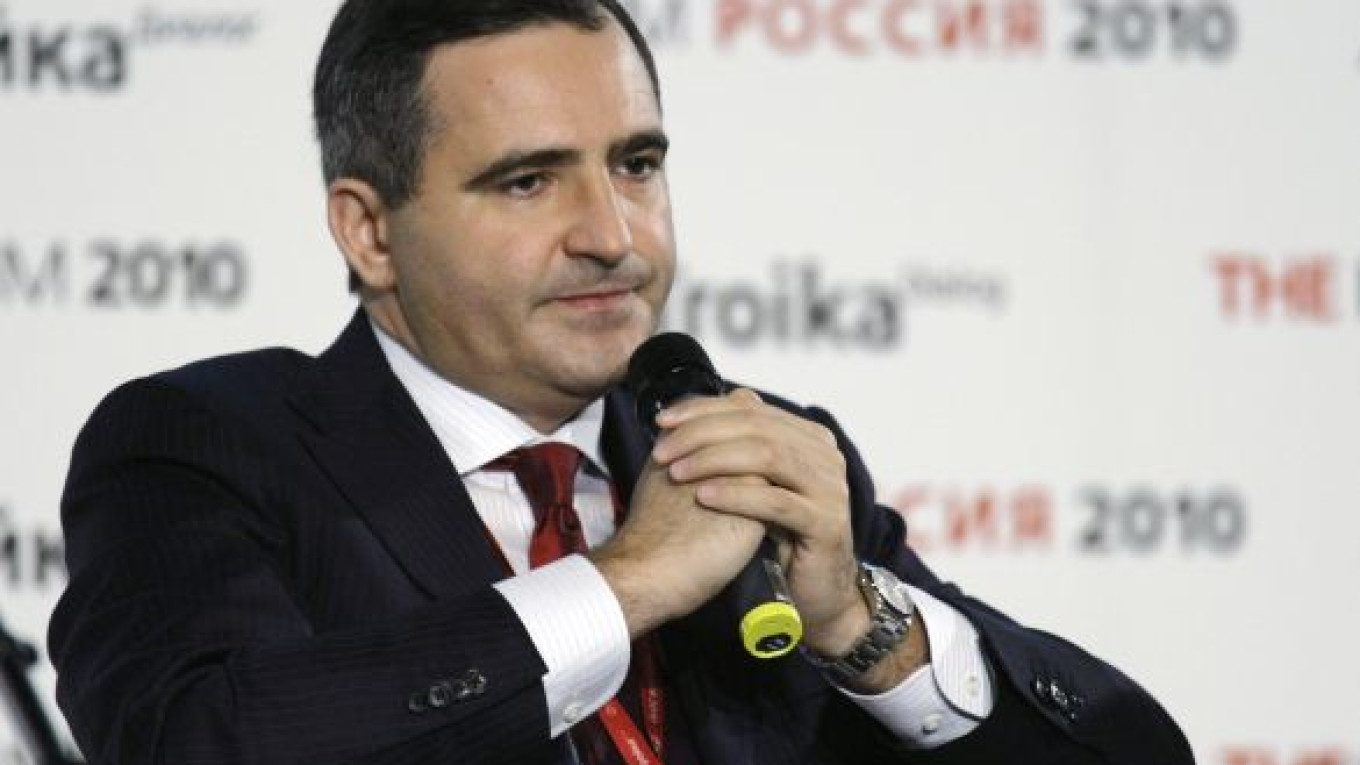Retailers lashed out on Thursday against a newly implemented law on trade, which went into force Feb. 1, saying the new rules will force them to review their range of goods and may give an unfair advantage to bigger stores.
“I haven’t seen any serious economist backing this law — isn’t that supposed to mean something?” Nikolai Vlasenko, chairman of Victoria Group, which owns the Kvartal and Victoria chains, said at the Russia Forum on Thursday.
Retail commerce in Russia is currently regulated by more than 600 laws, and it doesn’t need another one to make things even more complicated, Vlasenko said at a panel on food business.
The law, which occasioned a rare split between the Cabinet and the presidential administration, introduced strict regulations on retailers, including a shortened period of payment for delivered goods, limits on certain prices and a cap on stores’ profit margins.
Under the law, the government is allowed to set prices for certain kinds of goods for a period of 90 days if prices have jumped by more than 30 percent within the previous 30 days.
The legislation will also restrict retail chains from acquiring stores if the acquisition would cause their market share in the region to exceed 25 percent. Starting July 1, the limit will be applied to cities and municipal regions.
Retailers don’t have excessive profits, and therefore blaming them for earning too much doesn't work as a justification for introducing additional restrictions like the law on trade, said Vitaly Pyltsov, deputy managing partner of assurance and advisory at Ernst & Young.
Some chains have been forced to rethink the range of goods that they stock in response to the law, which will fully phase in over a period of six months.
"We will significantly change our assortment," said Lev Khasis, chief executive of X5 Group, which operates the Pyatyorochka and Perekryostok chains.
“There won't be, as there is now, a large number of similar goods in different packages,” he said.
While the final law wasn't as bad as an earlier version, Khasis said, it does give an unfair advantage to retailers that operate large-format stores.
The law holds that a single retailer can't have a market share greater than 25 percent in a given region, but the market share in this case is calculated by the number of stores opened, not sales.
"Retailers will open a bunch of small shops all across the region on their initial stage to get maximum coverage, but when they see that their 25 percent quota is running out, they will set up one big mall to close up the quota and have good sales,” Khasis said.
Others said the advantage accruing to big-box stores will go mostly to foreign chains. The law "gives an advantage to big-box retailers, that is, Auchan, Metro and other foreign players," Sergei Galitsky, head of retailer Magnit, told Kommersant in an interview.
Khasis, on the other hand, said the administrative barriers set up by the law were more likely to scare off foreign competitors rather than attract them.
Carrefour’s decision to pull out of the Russian market, as well as the fact that Wal-Mart has not yet set up shop, shows that administrative barriers in Russia hinder investors, he said.
Carrefour said in October that it was abandoning its plans to conquer the Russian market, adding that its growth here was too slow and that there were too few opportunities for acquisition.
But Deputy Industry and Trade Minister Stanislav Naumov, also on the panel, would have none of the complaining.
"You have to live according to the law, not threaten customers with rising prices. You need to stop drawing excessive attention to your excessively insular position," Naumov said.
For his part, Khasis said there would be no complaints about the law from his quarter. He said he had prohibited criticism of the law inside his company, now that it is in force, because he doesn’t want managers to blame their problems on the legislation.
A Message from The Moscow Times:
Dear readers,
We are facing unprecedented challenges. Russia's Prosecutor General's Office has designated The Moscow Times as an "undesirable" organization, criminalizing our work and putting our staff at risk of prosecution. This follows our earlier unjust labeling as a "foreign agent."
These actions are direct attempts to silence independent journalism in Russia. The authorities claim our work "discredits the decisions of the Russian leadership." We see things differently: we strive to provide accurate, unbiased reporting on Russia.
We, the journalists of The Moscow Times, refuse to be silenced. But to continue our work, we need your help.
Your support, no matter how small, makes a world of difference. If you can, please support us monthly starting from just $2. It's quick to set up, and every contribution makes a significant impact.
By supporting The Moscow Times, you're defending open, independent journalism in the face of repression. Thank you for standing with us.
Remind me later.


